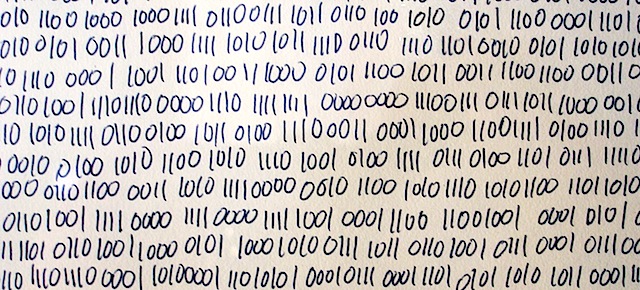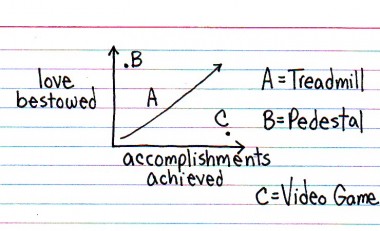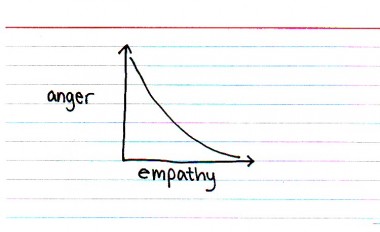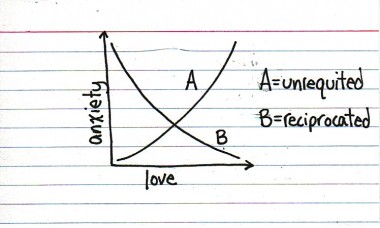

via thisisindexed.com
The NY Times tossed us quite a softball this week in the form of Bruce Feiler’s “The United States of Metrics”. The premise of the article is a familiar one: the advent of ‘smart’ technology has allowed us to quantify things that we couldn’t quantify before, from the steps we take per day to the friends we have to the size of our carbon footprint, and as a result, we are “awash in numbers. Data is everywhere.” It may sound alarmist, but Feiler tempers the diagnosis with some fascinating trivia and bits of humor. For example:
Samsung just added a heart-rate monitor to its popular Galaxy line of phones. The No. 1 paid app on iTunes this spring is the Sleep Cycle Alarm Clock, which monitors the amount and quality of winks you get and wakes you during a light phase of your cycle. The app is the top seller in every G-8 country.
…few neologisms better capture the change in the United States in the last 50 years than the move from pew to Pew.
There’s even smart cutlery. HapiFork tracks how fast you eat. If you don’t pause 10 seconds between each bite, the utensil turns bright red and vibrates to slow you down.
Lest we place the blame where it doesn’t belong (the culture, the tech itself, Gavin Belson), Feiler reminds us what’s really happening: “Big Brother isn’t our big enemy anymore. It’s Big Self. That hovering eye in the sky watching every move you make: It’s you.”

So once again, it turns out we cannot escape judgment and law by disavowing the Lawgiver–the engine here is an internal one, and it has everything to do with our bottomless desire for control and mastery. Scorekeeping technology has just taken a while to catch up. Or you might say, even though the apps may become obsolete, their appeal remains static.
But what’s so wrong with wanting to know where we stand? With wanting to know how many calories we’ve burned? Nothing, if that was all that was going on. Unfortunately, the measurements we throw out into the world on our best days have a way of boomeranging back on our worst. That is, you read about all the advances in wearable technology, and once the cloud of potentiality has cleared, pesky phrases like “the measure you give will be the measure you get” reassert themselves (Matthew 7:2).
This isn’t to suggest that we can somehow avoid metrics altogether. Obviously we can’t; they serve a purpose. But their inevitability doesn’t make them any more benign, especially when we turn them on ourselves. Words like ‘optimization’ are not only borrowed from the lexicon of efficiency (you are what you produce!), they also tend to imply a certain amount of upward trajectory. But the graphs we generate are a whole lot less fun when they don’t show progress, and over the long haul, I’m fairly sure all of our ‘life-logging’ charts will slope downward. What begins as a way to deny our mortality, by taking the judgment seat for ourselves (and pointing the gavel at the most mundane areas possible), ends up underlining it instead. Which probably sounds more despondent than it is meant to. The hope here is not to discourage any of the things being measured but to safeguard the joy inherent in doing them.
I can’t help but think briefly of church life here, especially during a week when ‘data’ was released suggesting that Americans are lying about how much they attend Sunday services. Apparently the phenomenon of ‘preacher numbers’ goes both ways. We may talk a good line, on the both sides of the altar, about how ‘it’s not about numbers’, but our eyes often tell a different story. Self-regard that rises and falls according to ‘the count’ (or the Google analytics)–who will deliver us, indeed! Paging Dr. Goodhart… And 2 Cor 5:19.

Anyway, after consulting a few folks who applaud the trend because of how much more well-informed decision-makers these apps are making us (!), Feiler gets to the critics. Among the protests he records are a few of the best zingers I’ve ever read in the Times, especially that one at the end:
Anne Lamott, the novelist and nonfiction writer whose best-selling books include “Bird by Bird” and “Traveling Mercies,” is concerned that the headlong rush into data is overshadowing “everything great and exciting that someone like me would dare to call grace.”… Ms. Lamott said the current obsession with quantification also represents a male point of view, because it favors order. “Women have always been handmaidens of birth and death, and that means mess and instinct,” she said. Data, by contrast, gives the appearance of control. “Everything that is truly human is the opposite of that,” she said. “It’s about surrendering control. The surface and numbers aren’t going to hold if your child gets sick or your wife gets cancer.”…
[Author of “The Black Swan” Nassim Nicholas] Taleb concurs. There are two schools of thought about metrics, he said. You can optimize everything, or you can do what the ancients did and say, “Good enough.” “Good enough is vastly more rigorous than any metric,” he said, “and it’s more humane, too. Once you reduce a human to a metric, you kill them.”

COMMENTS
5 responses to “It’s Not/All About the Numbers”
Leave a Reply













My New Year’s resolution is to become an illegal emigrant in France. At least they are trying to resist this brutal life we are making for the entire world to live by. They are atheist socialists fighting to hang on to Sunday as a day of rest. God bless them!